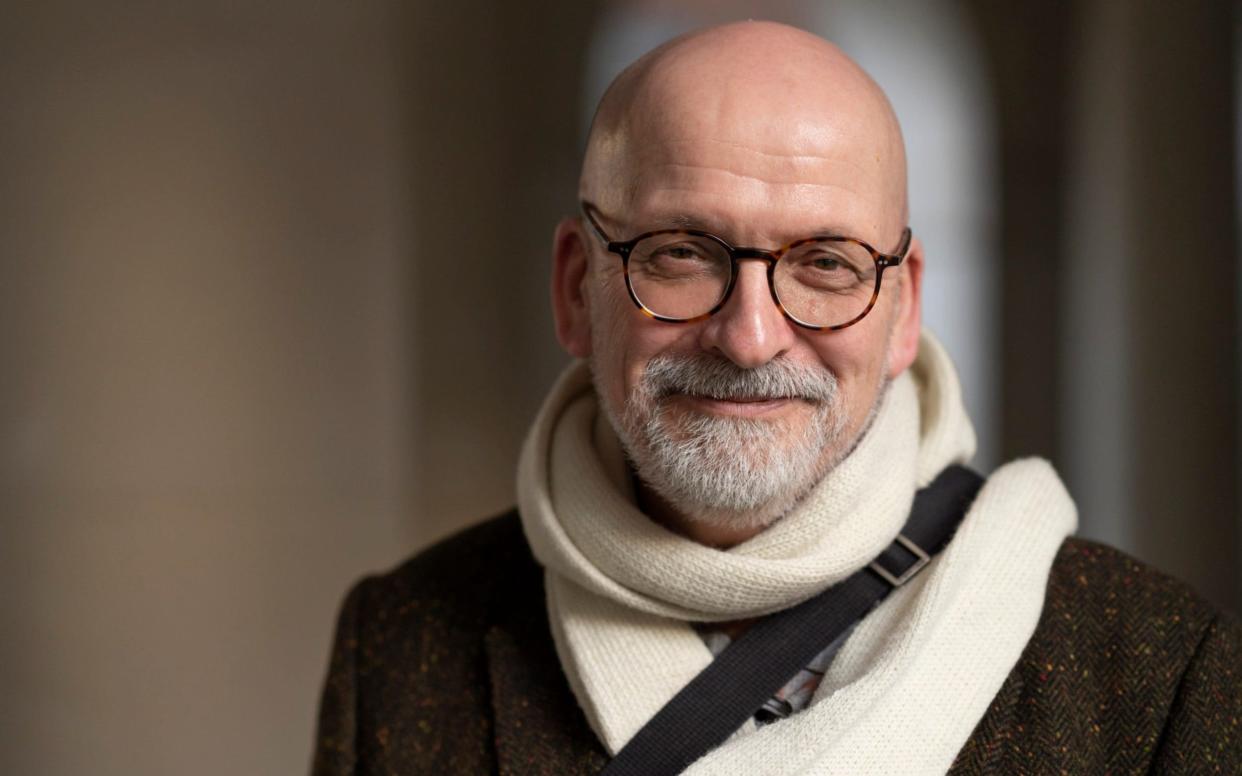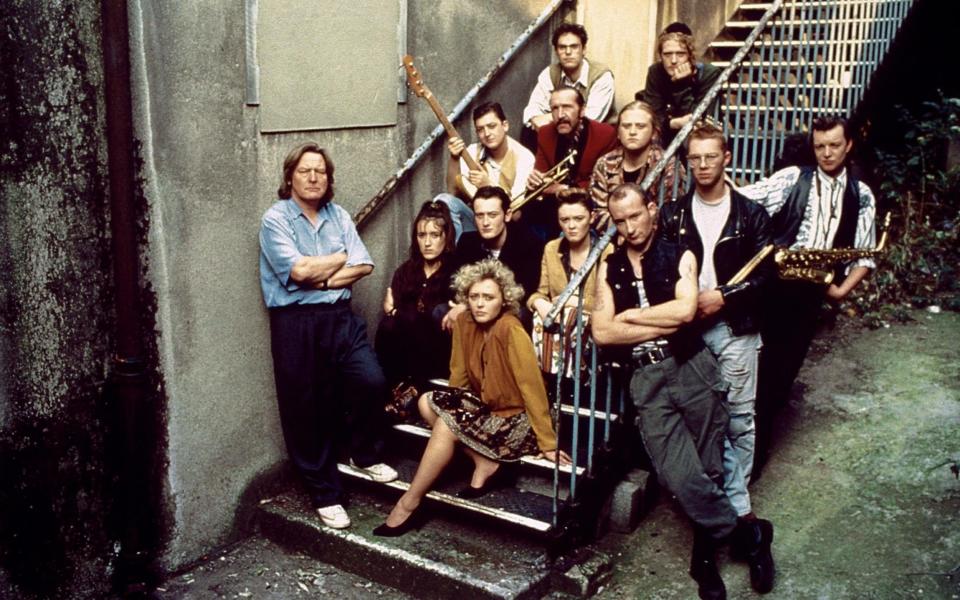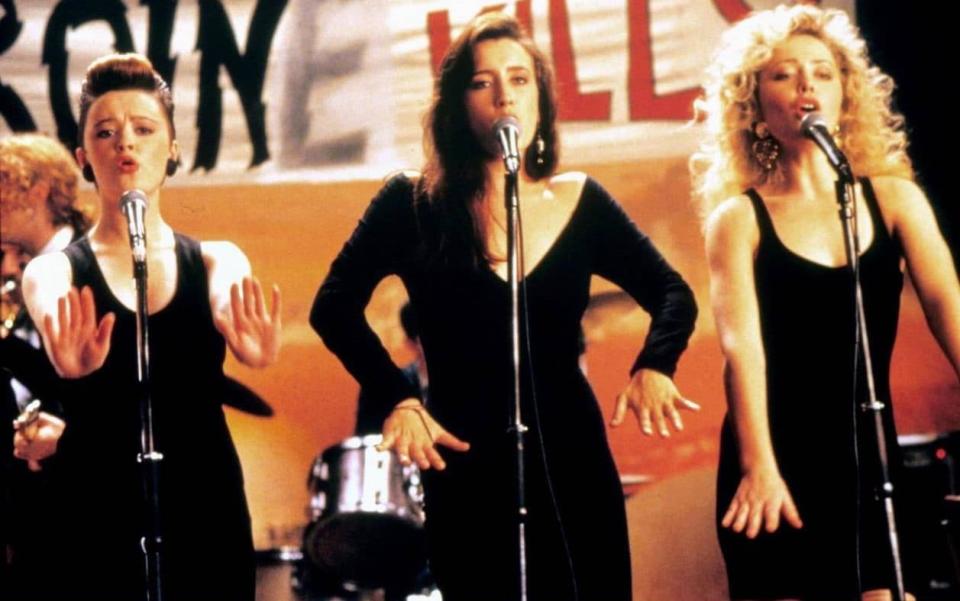Roddy Doyle interview: 'Once my children had grown up, I felt redundant'

It was a bright, cold day in March when I met Roddy Doyle, exactly one week before the Prime Minister put the UK under lockdown. We shook hands in the lobby of a Fleet Street hotel, then stepped back wondering if that was such a good idea. He’d flown in from Dublin; I was carrying a copy of the 61-year-old’s latest novel, Love, which was just about to be published. He’s long since turned 62, but it’s finally going to happen.
His previous novel Smile (2017) dealt with sexual abuse in Catholic schools. I ask him if he thinks the Church in Ireland will ever recover from the abuse scandals of recent years. “No,” he says flatly. “I don’t think it is even trying to. There seems to be, at the top of the Church, a level of lumpen stupidity… I don’t think it’s within them to take honest account of what has happened… And I think working-class people were decades ahead of the rest when it came to stopping going to mass and accepting the words of a priest as being either worthy of listening to or gospel.”
This damning sentence of excommunication for the Church from its people is delivered quietly. I confess I was expecting the man who wrote The Commitments and the Booker Prize-winning Paddy Clarke Ha Ha Ha to be exuberantly funny like his early novels, but he’s not. The softly spoken wit is always there, but as he drinks espresso and talks about losing loved ones, death threats, the male gaze, he’s intense, serious and thoughtful; inwardly, I have a moment of recognition and surprise that says, of course he is.

It’s there in the control of structure and tone in his writing, the sensitivity, perhaps never more so than in Love, which is so perfectly constructed that it is hard to believe it is really just about two old school friends getting drunk, and drunker, like they used to, moving from pub to pub, as they tease out the stories of the women they love and how their lives have changed since they last met.
There’s a beautiful line in it, where the narrator remembers what it was like for them as very young men – “Something happened when we were together. Joy rushed in and drowned us” – that seems to bottle what male friendship can be like.
The book grew from “a sense of good luck that I have friends I’ve known since I was a child”, Doyle says, and “the relatively recent loss of one of them, who I – without thinking it – thought would be sharing my life right up to the end. And that we could have a laugh and go to gigs and talk about the football, just enjoy each other’s sense of irony and say what we wanted without being worried about who’s listening. And that stopped. And it’s still a bit of a shock, two years later.”
Men are often very isolated, he believes. “I actually feel that myself. And I work by myself as well, which doesn’t help. There’s no one to suggest you go for a pint after work, unless it’s myself, and I’m not quite ready to have conversations with myself about it.” Women, he thinks, “are much better at keeping in touch, making new friendships, socialising”.
In Love, the men have a slight sense of obsolescence. “I do think as a father of adults that it took a long time to stop feeling… redundancy. You look at these big people who are actually taller than yourself, and independent, and you think, what was that all about? And did it actually happen? Am I being sentimental when I think of the weight of a child in my arms as I carried him or her up and down the landing to get them back to sleep? Is that real? Or did I make it up?”
Doyle and wife Belinda Moller have three grown-up children. Moller is the granddaughter of Erskine Childers, who was briefly Irish president in the Seventies as the Troubles raged in the North. Doyle was a teenager during those years, when sectarian bombings and murder spilt over into Dublin, where Sinn Féin had its headquarters.
I’d read that he has received death threats during his career – “More than once,” he confirms. Are people still afraid of saying the wrong thing about the wrong person? “No, I don’t think so.” Was he? “Personally afraid? I have been on occasion, but not enough to shut me up.”
The death threats didn’t come from Irish Republicans, he stresses. It was after he wrote the 1994 television series The Family, directed by Michael Winterbottom, which aired in Ireland and the UK.

“There was a sense that I was nibbling away at the sanctity of the Irish marriage and the structure of the Irish family unit. There was a lot of deep unhappiness about what I did then. But it didn’t come from Sinn Féin circles.” In fact, he’s had conversations with Republicans about his 1999 novel A Star Called Henry, in which he places a fictional character among the real-life revolutionaries of the 1916 Easter Rising, and, he says, “They cheerfully tell me they don’t like it, they don’t agree with my analysis… in a very polite way. But they like The Commitments.”
That book was Doyle’s debut, written when he was still a teacher and adapted into a hit film in 1991, although there was an unpublished coming-of-age novel before it that will never see the light of day because, Doyle explains to me, “it’s sh---”.
The Commitments set the mould for Doyle’s earthy, vivid depictions of working-class life. Does the university-educated Doyle ever feel sensitive about being seen as a middle-class boy writing about the working class? “I don’t feel I was a middle-class boy,” he disagrees. “I went to university, but I was the first one in my family to do so. My father left school at 15 and served his time for seven years as a printing apprentice. I grew up in a house that my parents paid for slowly and with great difficulty.”
He’s lost both of them in recent years. One of the characters in Love has a father who’s in a hospice. I ask him if it’s drawn from life. It was actually “based on the last week or so of my mother’s life”, he says. She died two and a half years ago in a Dublin hospice. “She was 92. And she was very unwell by the time she died. But it was such a relief when they took her from us, so to speak, and looked after her and all we had to do was kind of sit and watch, wait, and chat.”
I want to ask him about an aspect of the novel that may draw criticism in the current cultural climate: the way that a key female character only ever features as the subject of the men’s own memories, and barely gets a chance to speak for herself. They discuss whether she was “gorgeous” or “beautiful”.
Doyle insists it is a “safe” form of objectification and put in there deliberately to challenge the idea that the “male gaze” is always voracious or predatory. “I’ve seen those gazes,” he says. “And I hope I haven’t been the owner of those gazes.”
He admits to having a bit of a yearning for the character himself, “even though she doesn’t exist”. Does he think women will take issue with him?
“I always think whenever I’ve a book coming out, it’s going to be hammered,” he adds. “So, I wouldn’t be surprised.” He starts to laugh again. “But very often nothing happens at all, which is even worse.”
Love by Roddy Doyle (Jonathan Cape, £18.99) is published on Oct 15


